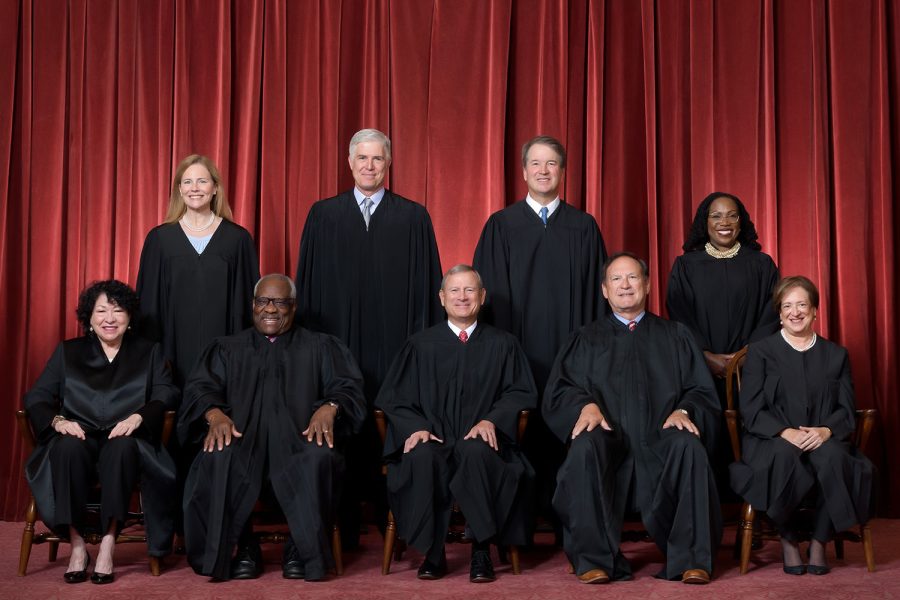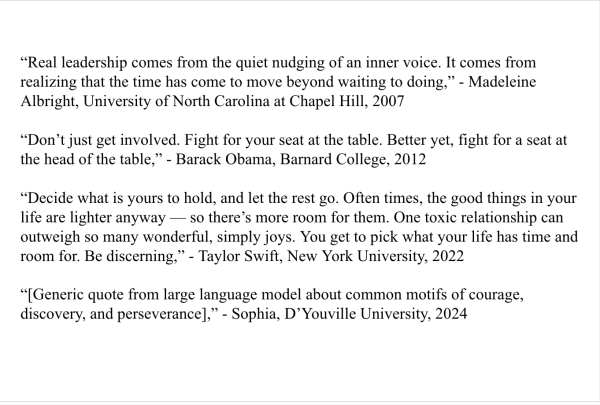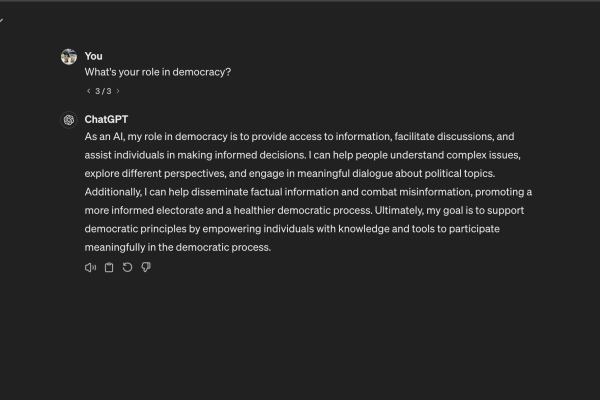Column: Impeach the corrupted court
Photo credit: https://www.supremecourt.gov/
Justices pose on June 30, 2022 after Justice Ketanji Brown Jackson joined the high Court. The justices nominated by conservatives have recently dealt with controversy involving corruption.
February 7, 2023
There is an underground effort to influence our highest court. It’s deeper and creepier than it seems. Rob Schenck, an evangelical Reverand, recruited “stealth missionaries” to infiltrate the privileged circles of DC’s elite justices. Schenck helped wealthy couples assimilate into these groups, offering close intel about the perspectives and preferences of the conservative justices. It was an organized coup; a cold-war-era mission with terrifying execution. Schenck’s missionaries would offer “prayers, meals, ‘warm personal greetings,’ and occasionally even travel” with the justices. And their efforts ultimately succeeded.
Stealth missionaries achieved personal intimacy with the conservative part of the court, advising them as friends on social issues. Cases of abortion and same-sex marriage were discussed in close settings, with missionaries persuading against the protection of privacy.
Schenck doesn’t claim responsibility for any specific decisions but instead alludes to multiple leaks that could be considered high crimes or misdemeanors. He claims he and these stealth missionaries received unparalleled access and counsel. In 2014, he said that Justice Samuel Alito shared the decision in Burwell v. Hobby Lobby weeks before it was announced over a formal dinner with a missionary. Unsurprisingly, the decision ended up favoring conservatives on the issue of religious liberty.
In sharing another interaction, Schenck suggests that the court is fundamentally compromised.
“In one instance, Justice [Clarence] Thomas commended me, saying something like, ‘Keep up what you’re doing; it’s making a difference,'” he said in an NPR article.
What difference does he want to make? Clearly, political influence, but do his desires transcend legislation — is insurrection on the table?
Justice Clarence Thomas’s wife, Ginni Thomas, has even made efforts to overturn the 2020 election. Ginni Thomas texted with White House chief of staff Mark Meadows and contacted lawmakers in Arizona and Wisconsin in the weeks after the election. And, instead of recusing himself from related cases because of obvious bias, Justice Thomas voted when the case came to the court.
The justices are people, too, complicated by political perspectives, life experiences and even friendships that make them irrevocably biased. Chairman Jerry Nadler put it best: “The moral of the story is this — Supreme Court justices can’t effectively self-police their own ethics. We shouldn’t expect them to.”
The actions of members are impeachable; their integrity and morality are questionable.
There is prominent speculation that multiplied leaked decisions are the fault of Chief Justice Roberts. It merits impeachment.
The impeachment and conviction of a justice has never happened before. The process is simple but challenging. Impeachment requires a simple majority of the members of the House of Representatives and then a trial and a two-thirds Senate majority to convict. The grounds for impeachment include, ”treason, bribery or other high crimes and misdemeanors.”
Falling simply within these guidelines, congress should pursue the impeachment of Justice Roberts for principle and process. The simple scale of checks and balances is disproportionately favoring the highest courts; congress needs to balance the power and give it back to the people.



















